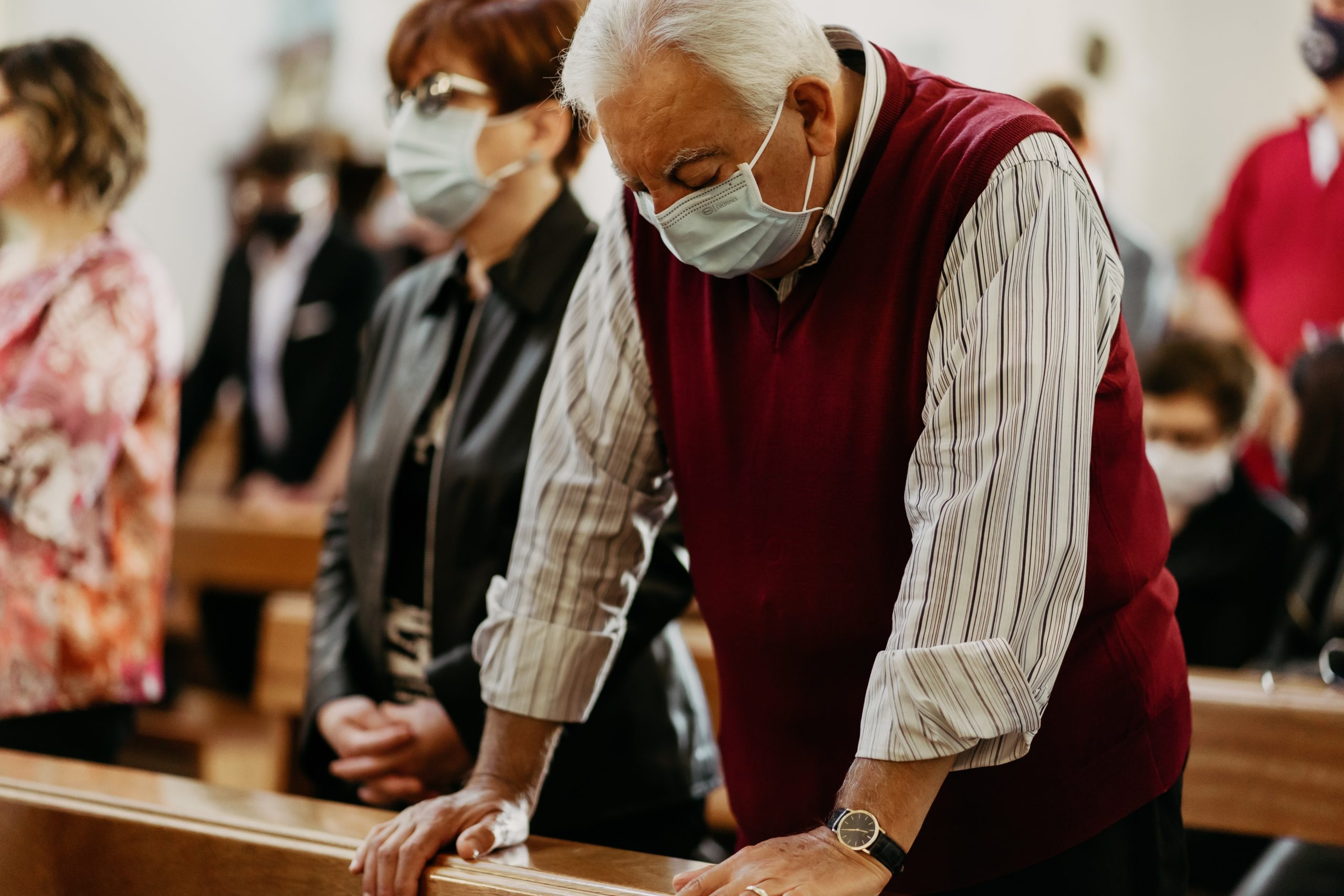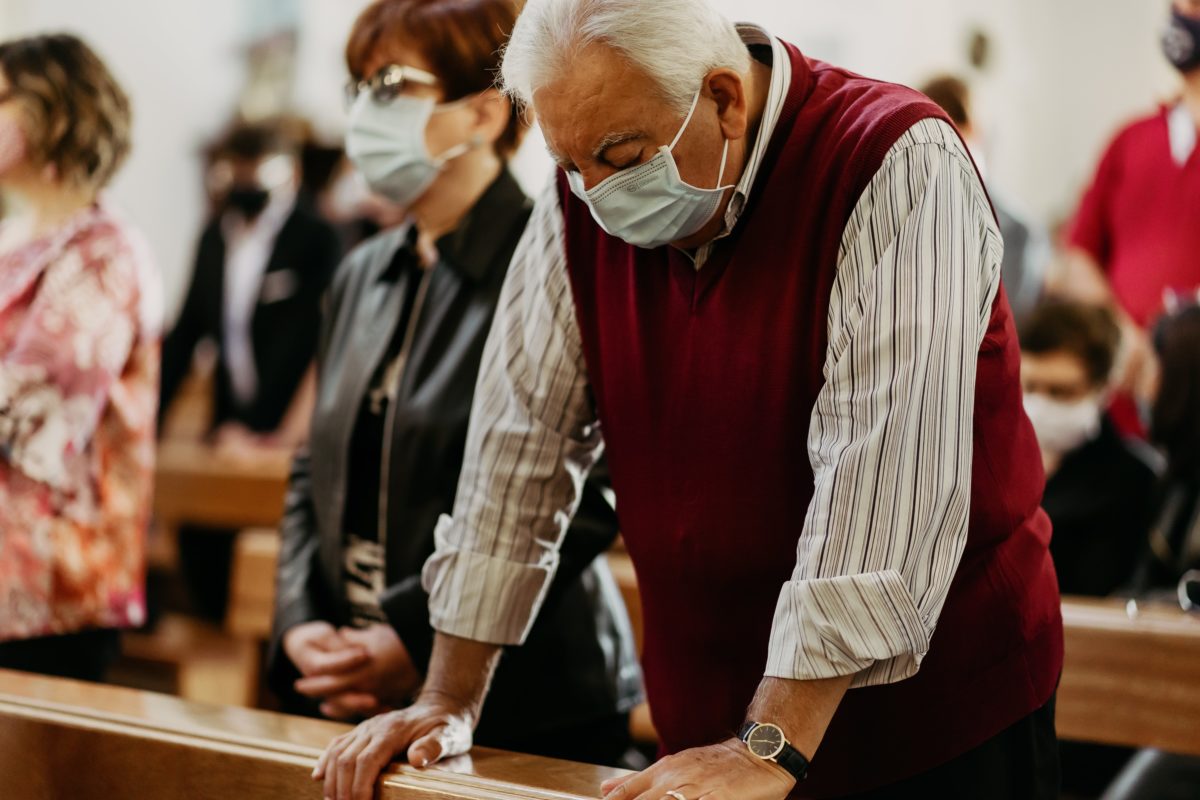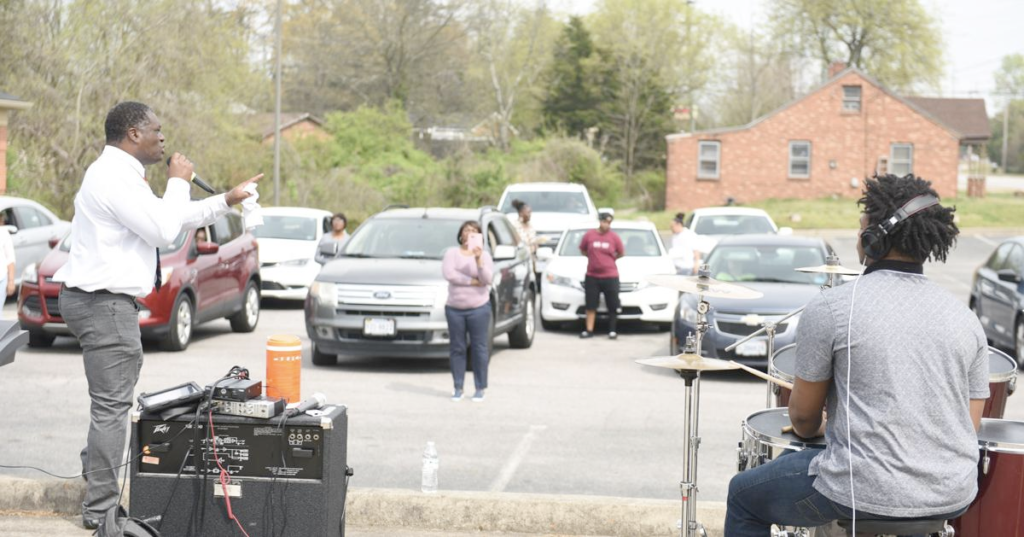Co-missioners,
As we’ve mentioned here before, Steve Kuhl serves as priest at St. Mark’s Episcopal Church in South Milwaukee. Lately he’s been sending us pieces that he writes for the saints there. Another arrived a few days ago. It has to do with revisions to worship plans as vaccination rates increase and the pandemic eases. Why do we share it? Not because of the scheme itself. We know of congregations headed by faithful, responsible pastors that taken a quite different approach to the worship question this past year. Still, what stands out in Steve’s piece is the way he invites his readers to think with Christ and in Christ as they respond to the plan their leaders are putting in front of them. In the Crossings view of things, it’s a down-to-earth example of the move from Step 5 to Step 6, specific faith giving rise to concrete behavior. You might watch for this as you read.
Peace and Joy,
The Crossings Community
Hybrid Worship:
On Making Decisions with a Good Conscience, in Moral Responsibility, with Limited Knowledge
by Steven C. Kuhl

The big news for our parish this week is that on June 20, 2021 we will be offering worship in a "hybrid" model. We will continue to do the Drive-in format, but add an indoor component by simulcasting it into the church. Those who want to continue to worship Drive-in style can and those who want to worship indoors can, with required masking, social distancing, and a limited capacity of 20 people. See the attachments for a more detailed description of how the hybrid system works and the parking map.
In doing this, I want to emphasize that the pandemic is not over. True, it has been mitigated by the vaccine, but it is not over. And "getting it over" is complicated by the fact that less than 50% (46% is the latest number) of the population in Wisconsin is fully vaccinated. Of course, reasons vary for not getting vaccinated. Some are not yet eligible, like children under 12, some give “reasons of conscience,” like anti-vaxxers, but many are simply hesitant to get vaccination because of “limited knowledge,” they want to wait and see because they are unsure if the vaccine is safe.
I fully agree that people should act on their beliefs. Indeed, to go against your belief is sin, as Paul tells us (Rom. 14:23). But I also believe they must act on those beliefs in a way that does not harm others and that is informed by the best knowledge we have about what is true. For conscience is, by definition, not simply a matter of "private opinion," but of “believing the truth,” and moral action is not about "exercising my rights" but "self-discipline," so as not to harm others, but do good towards them. Therefore, ignorance is NOT bliss, in spite of the old adage. If we are uncertain about things, we are not to throw caution to the wind, but exercise caution and restraint.
 Therefore, our "hybrid worship format" is based on the double-principle of respecting conscience and accepting moral responsibility in light of limited knowledge, what we do and do not know. And what we know is that the pandemic is not over and the times in which we live now are relatively safer for some than others. It is significantly safer for those who are vaccinated than those who are not; and it is significantly safer for outdoor gatherings than indoor gatherings. An incident I had to deal with this week brought this home to me loud and clear.
Therefore, our "hybrid worship format" is based on the double-principle of respecting conscience and accepting moral responsibility in light of limited knowledge, what we do and do not know. And what we know is that the pandemic is not over and the times in which we live now are relatively safer for some than others. It is significantly safer for those who are vaccinated than those who are not; and it is significantly safer for outdoor gatherings than indoor gatherings. An incident I had to deal with this week brought this home to me loud and clear.
On Monday (June 7) I received a phone call from a young woman whose brother of 47 years had died. The family is not a member of St. Mark's, but they had purchased cemetery plots from us back in 2012 when their father had died. She called to make arrangements to have her brother buried on this coming Monday (June 14). So I met with the family and staked out the grave plot for the grave digger. In the course of several conversations it became clear that her brother died of Covid and that he contracted the disease three weeks before his death. He had been hospitalized, but the best medical services were unable to defeat the virus.
Further conversation revealed even more just how tragic and heartbreaking his death was. While the sister and other family members had gotten vaccinated, her brother did not. He was “vaccine hesitant” and wanted to wait and see if the vaccine was safe. The family had all urged him to get vaccinated since he had diabetes and other compromising factors. But he insisted on waiting. I asked if she knew where and how he might have contracted the virus; and she said she did not know. He was very cautious she said, but within the time frame of exposure and getting sick he had eaten out in a restaurant and attended indoor, in-person worship at their church. She wanted to believe he caught it from the restaurant and not the church, because, as far as she knew, no one else from church got sick. But, of course, the “mystery” of the virus is that it can spread quite effectively incognito, under the cover of health, in non-symptomatic carriers.
In addition, I also heard on a morning news show just how important it is to take extra precautions, even if you are vaccinated. The host of the show said that he had gone to his doctor and the doctor insisted that both of them wear a mask. The host asked, “Why? We've both been vaccinated.” The doctor replied, “Because the vaccine is only 95% effective and slightly less so with the new Delta Variant. It is possible for vaccinated people to be carrying the virus. I’m a physician. I see hundreds of people with my practice. Many of them have various kinds of immune deficiencies. I need to take this kind of precaution in my practice.” The meaning is clear, vaccinated people can still be incognito carriers of the virus. Therefore, when you are among people, especially, large indoor gatherings, you need to take precautions.
For this reason, for the sake of conscience and moral responsibility, and in light of limited knowledge, we as a parish have decided to use a Hybrid format for worship. Fr. Steve will preach and preside from an altar in the parking lot for the Drive-in participants who will listen to him on their FM radio. This is exactly the same as what we have been doing since November 2020. Those who want to go inside will view him on a screen. Those inside, however, will be required to be masked, socially distanced, limited to 20 people, and follow the direction of the ushers for movement. The assisting minister will read the lessons and do the prayers from inside the church and be heard by those in the parking lot over their FM radios.
We hope you understand our reasoning for this and will honor it. We think it fits with a kind of reasoning that is consistent with the Gospel of Jesus Christ. It is the kind of reasoning Paul used when counseling people who had different opinions about what was proper public conduct. In the face of limited knowledge—even, outright disagreement on knowledge—he advised "don't quarrel over opinions" (Rom. 14:1). In his day, members of the church in Rome were quarrelling over what food to eat (14:2-6) and what holy days to observe (14:5) in light of the Old Testament tradition of the Jewish members and the cultural traditions of the Gentile members, all of whom agreed on Christ as the source of salvation and the basis upon which they lived their lives.
Although Paul had his own opinions on these "knowledge" questions—and he would be regarded as a liberal in his day—for him the point is "not to pass judgment" on those who honestly hold opinions different from yours (14:3). Of course, that did not preclude honest forthright discussion on these matters in the hope of finding the truth about such knowledge questions. The one assumption is that everyone be concerned for the truth and change accordingly. But until such agreement on the truth comes, Paul counseled "live in harmony with one another" (14:5), what we might call "compromise" based upon the one all-encompassing principle we agree upon, the Christian gospel. In Romans 14, he put it like this.
"We do not live to ourselves, and we do not die to ourselves. If we live, we live to the Lord, and if we die, we die to the Lord, so then, whether we live or whether we die, we are the Lord. For to this end Christ died and lived again, so that he might be the Lord of the dead and the living." (14:7)
What does Paul mean by this? He means that Christ did not act (die and rise) to benefit himself (cf. 15:3), but to benefit us sinners, based on our need for forgiveness and our desire that all things be made right between God and us. That is the gospel. And by so believing this gospel, we become the Lord's and, in becoming the Lord's, we are called to lead lives that are worthy of the Lord, that reflect his selfless love for others. As Paul put it, we strive "to live in harmony with one another, in accordance with Christ Jesus, so that together [we] may with one voice glorify the God and Father of our Lord Jesus Christ."
It is important to note that this harmonization or compromise with one another is not a "compromise with evil," but a compromise with the "love of God in Christ Jesus." It is about forbearance, patience, self-discipline, not judging one another, and pursuing the truth in love. As Paul says elsewhere, it is about "look[ing] not to your own interests, but to the interests of others." It is to live with the "same mind that was in Christ Jesus" (Phil. 2:4-5).
Living in harmony with one another is precisely what we desire to do by having this hybrid worship format. We think it provides “all things for all people” (1 Cor. 9:19-23) as Paul also describes our desire in Christ Jesus. That’s because it gives equal access to the saving Word of God to all people, allowing them to worship with a good conscience, in moral responsibility, in light of limited knowledge.





You must be logged in to post a comment.